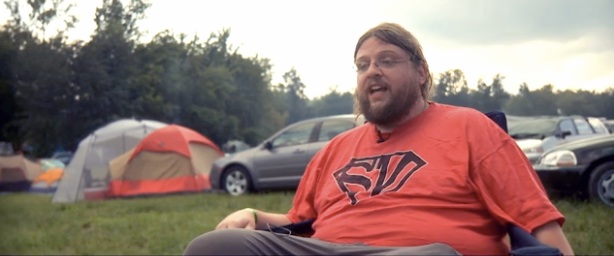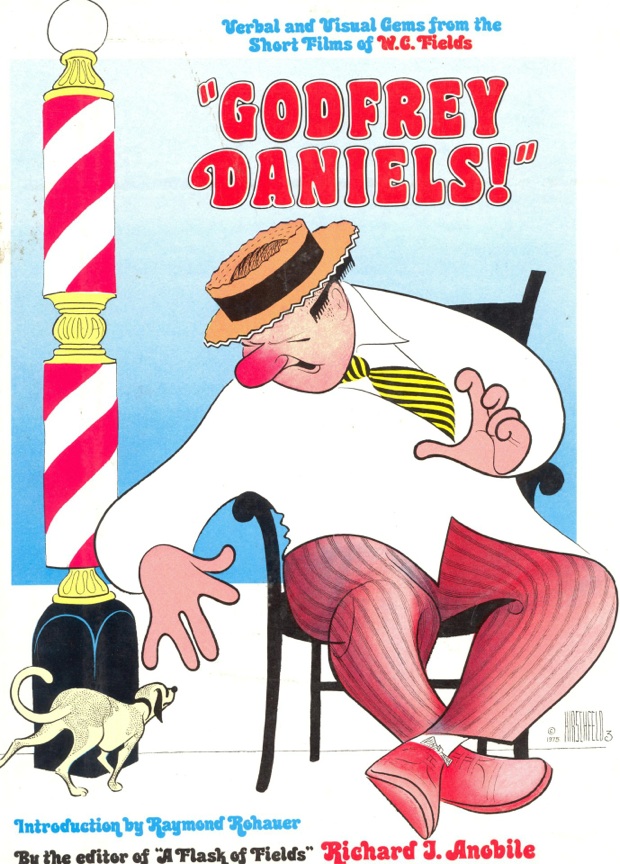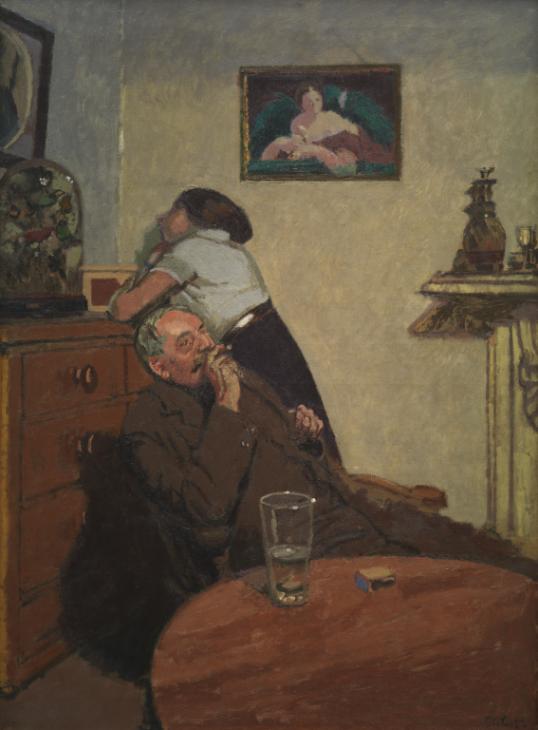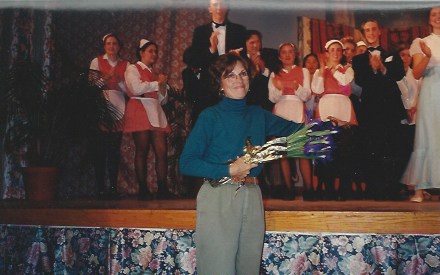
the author being visited by Hiccuppia
I think I’ve mentioned before that the use of vulgar language has grown apace (as they used say) in recent years. At least Richard Nixon spewed his vulgarity and profanity[1] behind closed doors (though the tapes were running). I can’t imagine Jimmy Carter or Ronald Regan saying BULLSHIT when addressing the nation as Trump did in a tweet last October.
https://twitter.com/realDonaldTrump/status/1179422987684077568
I heard in person Beto O’Rourke say “shit” in a stump speech last summer, and on Twitter, oh do Lawd, even such staid conservatives as Bill Kristol and Jennifer Rubin will occasional tweet an obscenity. Don’t get me wrong: I’m not squeamish. Vulgar language doesn’t offend me. I’m only pointing out a Late Empire anthropological trend.
For some reason, twenty or so years ago, the Muse of Light Verse, Hiccuppia, descended upon me and whispered the following in my tiny little ears:
A Meditation on the Sounds of Indecorous Words
By Gorgons with long whips pursued
How naked go the sometime nude!
Robert Graves
Fellatio is a lovely word,
Operatic in a way:
“The role of Fellatio will be played
By Mr. Richard Cabot Clay.”
Sodomy, on the other hand,
Lacks that light Italian ring.
Biblical, confessional.
A cry of pain! A serpent’s sting.
Cunnilingus could be a caliph
Thundering across desert sands,
Seeking long lost treasure troves
Guarded by jinn in distant lands.
Fuck, of course, isn’t exotic.
Its harsh cough can cause vexation,
But when a car door smashes your fingers,
it sure beats fornication.

The idea, obviously, it that vulgar words can be beneficial in certain situations. I used to encourage my students to use them sparingly, or those Anglo-Saxon monosyllables would lose their magic, wouldn’t be there for them when they need them to express rage or alleviate pain.
I can recall my late wife Miss Birdsong using the f-word only once, and it certainly got my attention. If I recall correctly (and I do), a second person pronoun followed the present tense verb.
On the other extreme, dig this cat who is featured in Sean Dunne’s documentary film American Juggalo.

Here he is ruminating on his adventures at a Juggalo gathering and how being a Juggalo has made him a better person. You should hit the link and fast-forward to 5:09 and hear him for yourself because I can’t begin to do justice to his intonations, rhythms, phrasing.
Juggalo: The only way I got that vomit off me was to get to the fuckin raid.
Interviewer: What happened?
Juggalo: I got fucked up. I was drinking Caribou Lou on the fuckin carnival rides and fuckin got fucked up. Apparently, I fuckin passed out and then my fuckin homeboy fuckin comes, shows up out of nowhere, and gets me to the fuckin tent, and man, I fuckin fell out in the middle of the fuckin road. I had motherfuckers come ask me how I am. That how bad it was. I was a fuckin spectacle, and shit, I don’t give a fuck because it was fuckin righteous.
I’ll tell you for real about being a Juggalo, man. That shit made me the motherfucker I am today. Honest to God, man. If it wasn’t for Jay and [inaudible] that shit wouldn’t be on. I don’t wanna fuckin think about the kind of motherfucker I would be. I grew up a fuckin decent, fuckin good-hearted motherfucker. I’m a fuckin nice person. I can cook like a motherfucker who makes some straight up motherfuckin grub. Fuckin chicken fried steak, fuckin collard greens, fuckin mashed potatoes and all that. Fuckin sausage gravy biscuits, fuckin everything, man. I fuckin cook like a motherfucker.
I wanna find me a skinny ass little bitch and make her fat, and then we’ll lose weight together, and then we’ll bond.
[amiable maniac laughter]
But, o my brother, my dear Juggalo, what you gonna scream when you’re entangled in the metal mess of your wrecked car waiting on the Jaws of Life to extricate you?
O gee golly willikers – dagnabbit – ouch – Godfrey Daniels, muthafuckin muthafuckers!
Then again, an vulgarity can be sometimes effective when one is on the verge of a massive cerebral hemorrhage. Take it away Jeff Tiedrich:
And on that discordant note, I bid you, dear readers, a fond fuckin’ adieu.

[1] Profanity refers to words that offend religion; vulgarity deals with excrement and genitalia.























 At a funeral reception, you don’t want repulse people who need a hug. As we embraced, one of my former students said, “Corona Virus be damned.” For a young person who most likely will face what amounts to a bad cold if infected, this attitude seems reasonable to me. For a woman in her eighties, not so much so. Anyway, at the reception, I let whoever was making eye contact make the first move, whether it be the awkward fumbling of an elbow bump, a handshake, or hug.
At a funeral reception, you don’t want repulse people who need a hug. As we embraced, one of my former students said, “Corona Virus be damned.” For a young person who most likely will face what amounts to a bad cold if infected, this attitude seems reasonable to me. For a woman in her eighties, not so much so. Anyway, at the reception, I let whoever was making eye contact make the first move, whether it be the awkward fumbling of an elbow bump, a handshake, or hug.

